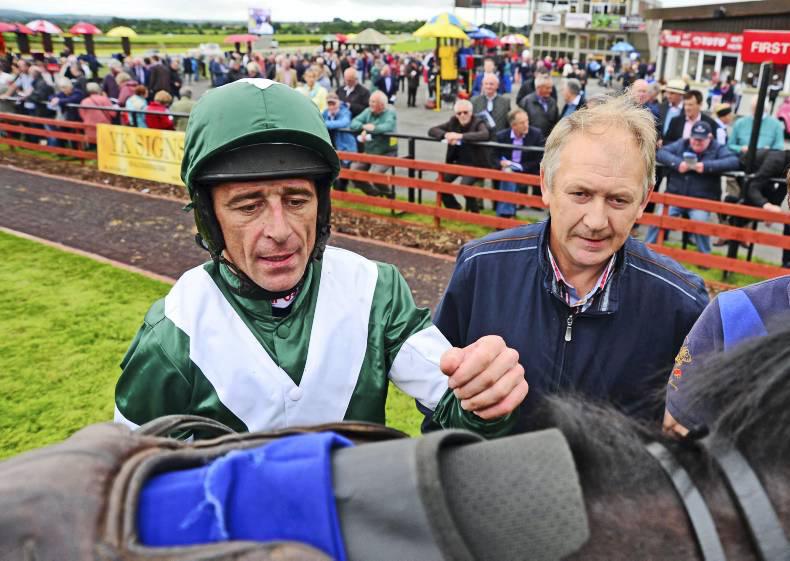THE audacious coup organised and landed at Roscommon on Tuesday has livened up what is one of the duller weeks in the horse racing calendar, with apologies to fans of the Shergar Cup.
As usual, there has been plenty of debate centring on whether such well-publicised gambles are bad for the image of racing, or indeed whether the intrigue involved actually makes the sport more appealing to a public who are cynical enough about the world to begin with.
It would be easy to weigh in on the Byrnes vs Bookmakers debate, but what exercises my mind on the issue isn’t this mythical battle between shrewd punters and rich bookies, but what the wider story is for horse racing as an industry reliant on betting.
The problem with most debates, like the one still raging about betting and television coverage, is that they focus on the controversial aspects of an issue, rather than the truly important ones.
For example, the spat between Graham Cunningham and Mark Johnston on last week’s Morning Line did plenty for the viewing figures of the show (or at least the version on Channel 4 +1) because it was feisty and passionate, but it completely failed to address the real issues which Johnston wanted to tackle, instead latching onto his most inflammatory words instead.
As it is with that debate, where the sideshow is in danger of derailing the true argument, so it is with the Byrnes gamble.
Whenever a betting coup is landed, or indeed foiled, there is always a strong temptation to reflect on a number of related issues, such as the planning required to pull off such a gamble, and the need for nerves of steel in the execution of the task.
Should we glorify the connections involved for pulling one over on the “old enemy”, or bemoan the fact that formbook aficionados are victims of such “duck-egg gambles”? Do we point the figure at stewards and handicappers for allowing the true ability of horses to be so hidden?
All are valid points for debate, but none are overarching. If we buy into the belief that racing and betting are intertwined and that the former is reliant on the latter to flourish, then the real question we must ask is whether what happened at Roscommon is good, not for the image of the sport, but for future betting spend on horse racing. It really is that simple.
COMPLICATE
The interesting thing about viewing things this way, is that there is no need to complicate the argument with a moral standpoint.
We all have our personal view on the likes of Charles Byrnes, Barney Curley, John Mulhern and others who made their name by tilting successfully at the ring, but it really doesn’t matter if you consider them heroes or cynical manipulators of the market, the only thing of real import is whether their exploits will make horse racing a more or less attractive medium for betting in the future.
There are arguments both ways of course, and to remove the stories of Yellow Sam and Gay Future from history would be to lessen the romantic appeal of the sport and the game of betting. That said, the warm glow of retelling the Gay Future story to my prospective grandkids would be nothing if the sport was to shrivel on the vine.
There are two factors to consider in this scenario - the willingness of punters to keep spending on a sport in the wake of insider gambles, and the willingness of bookmakers to keep laying bets to those who might be in the know.
It doesn’t matter if news of Byrnes’ outlandish feat was to create a whole army of new bettors, eager to follow their dream of Money Without Work (© Martyn of Leicester) if they find themselves immediately restricted in their new activity.
We must accept that successful plunges and betting restrictions are two sides of the same coin, and the flipside of the euphoria of those celebrating the great Roscommon cash grab as a victory for punters, is that they, who took no part in the gamble, will run the risk of having their own betting curtailed by whatever strictures the online firms deem necessary to prevent a repeat.
When we talk about this issue, we tend to create characters for both sides, with a natural enmity between them; for betting to truly benefit the sport, however, it needs to be seen as one entity, a trustworthy, reliable marketplace in which all participants can conduct their business in the knowledge that they aren’t being taken advantage of.
That’s a two-way street, of course, and while it’s usually the bookmaker who is cast in the role of villain, it’s not always beneficial when the tables are turned.
